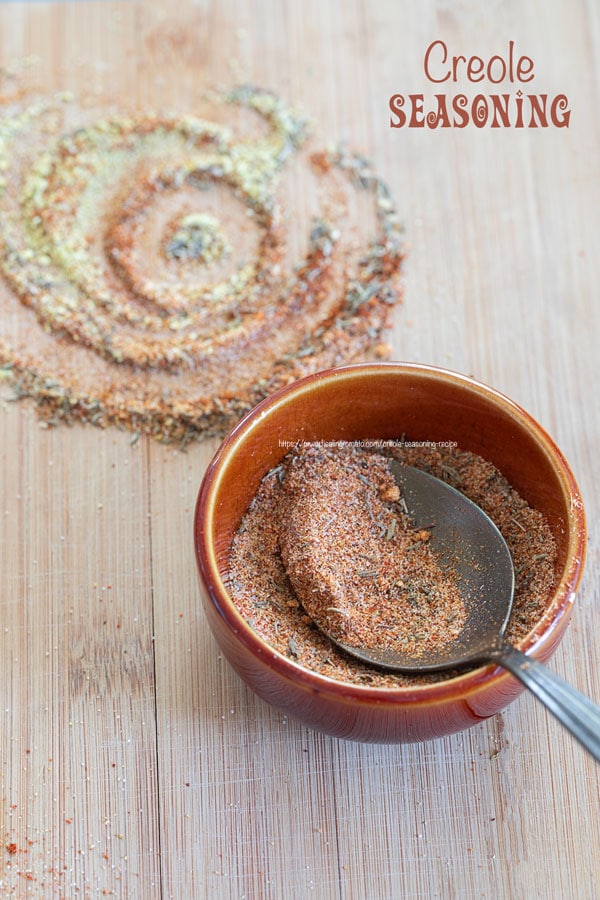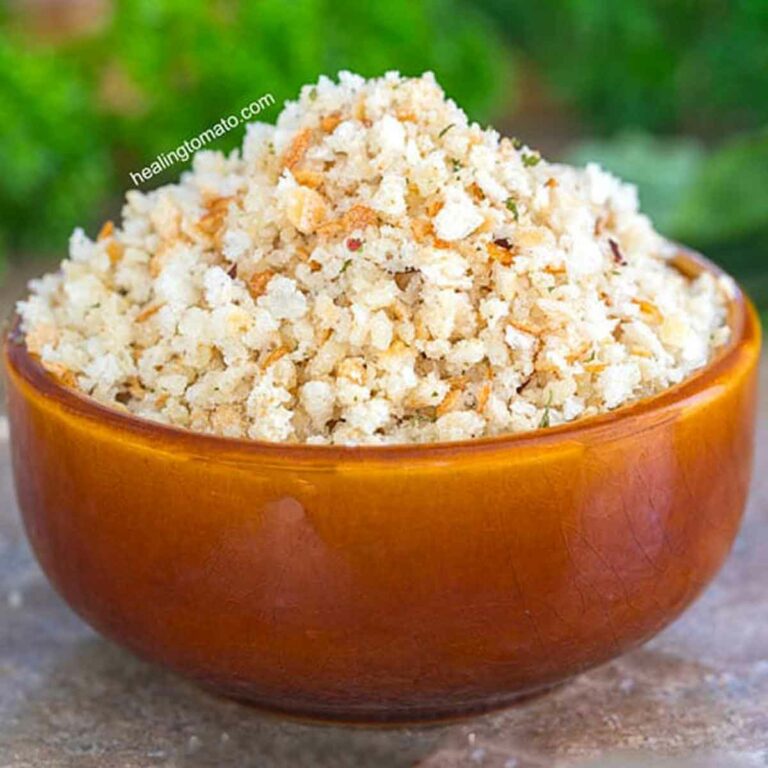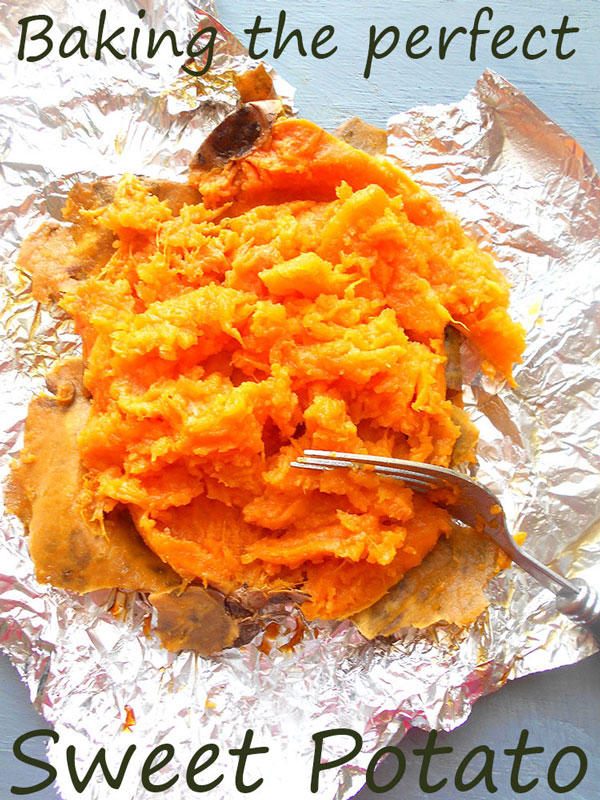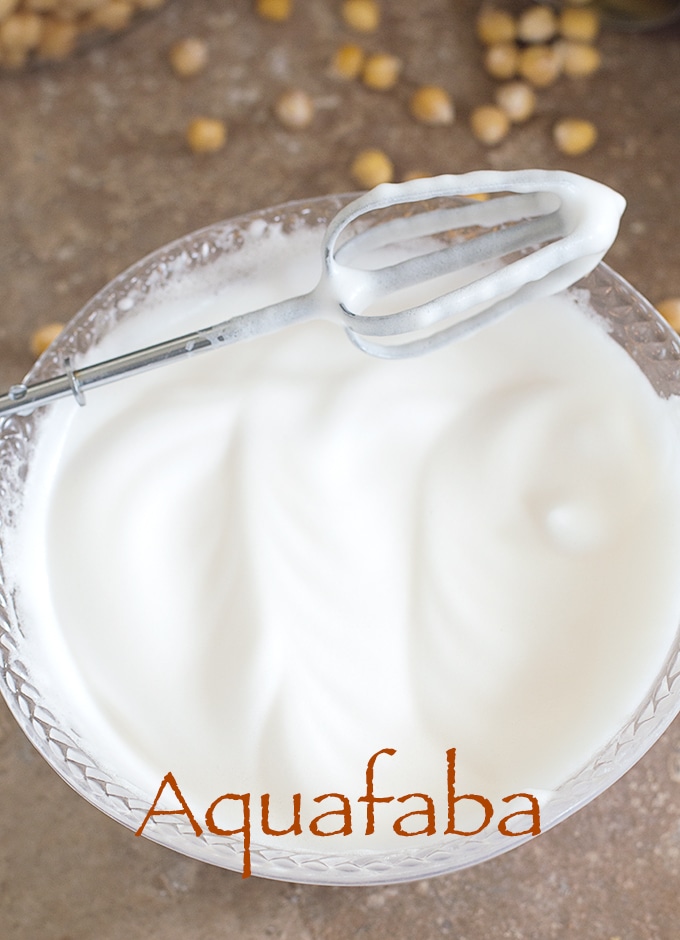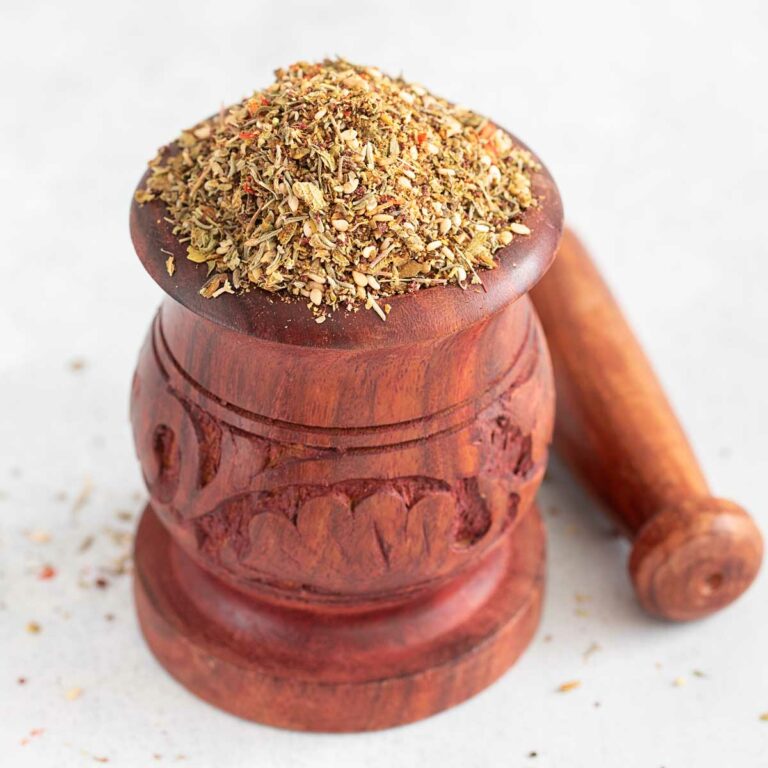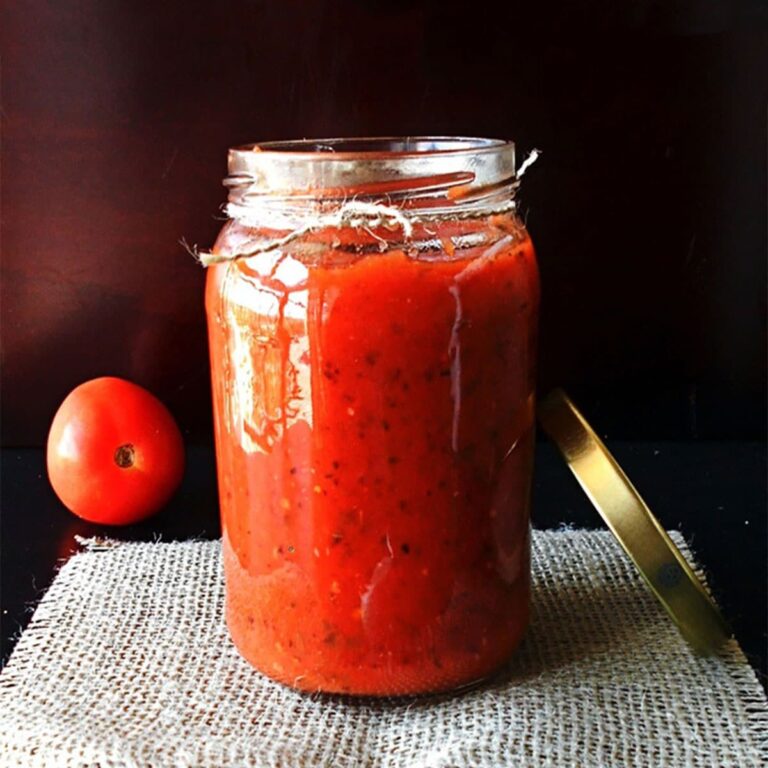Step by step process of how to cut cabbage with detailed images. I think cutting cabbage is really easy and it doesn’t need any fancy gadget. Here are some tips and tricks for cutting the perfect cabbage
Ok, so are you in the team “I looooove cutting cabbage”?
or
Are you on team “Why was cabbage created in the first place because it’s a pain to cut”?
If you are in the latter team, this post is for you!
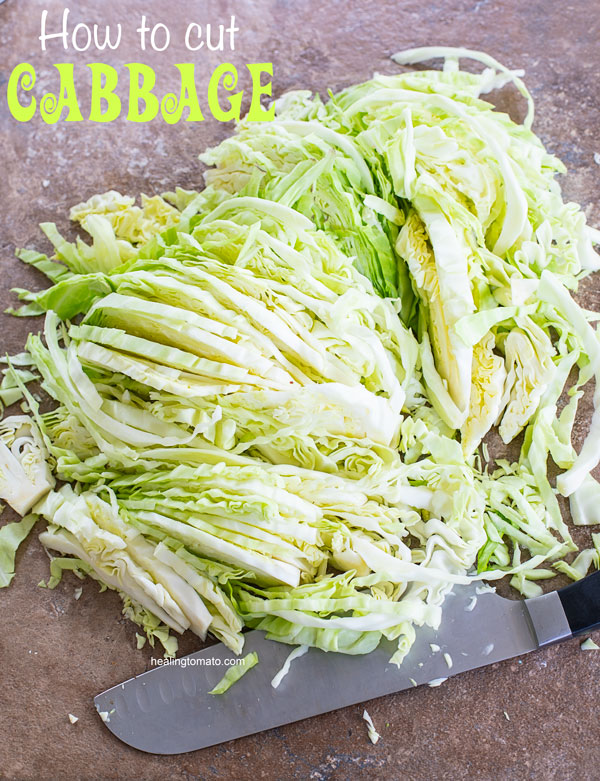
Why we have a love-hate relationship with cabbage
We all love to eat it, but hate the process of preparing it. It’s bulky, fussy, and hard to work with.
Yet when it’s prepared correctly, like cabbage steak or a simple cabbage curry, everyone eats it.
Cabbage also has a funky aroma when it’s steamed, so that adds to everyone’s disdain for it.
Cutting cabbage is a fun process and you get so much satisfaction at the sight of a fully chopped head of cabbage.
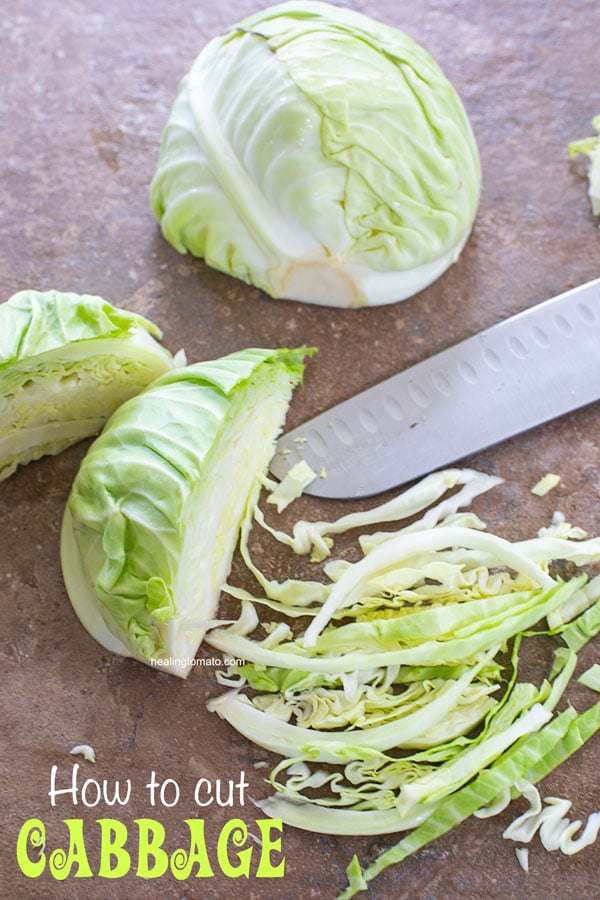
How to cut cabbage
1) I used about a 3-4lb head of cabbage for this post
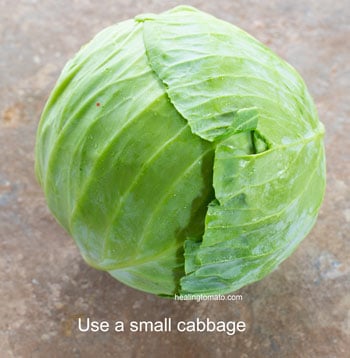
2) Remove the outer leaves of the cabbage. See the section below on what to do with these leaves.
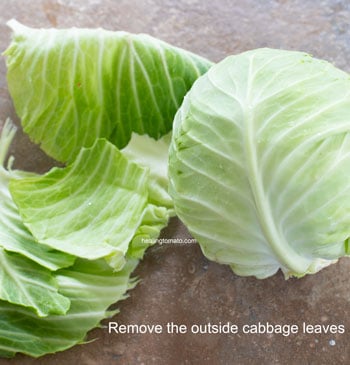
3) The first thing I like to do is cut off the cabbage’s bottom stem. Most of the grocery stores now sell with the stem cut off, but, just in case you don’t get one with the stem cut off.
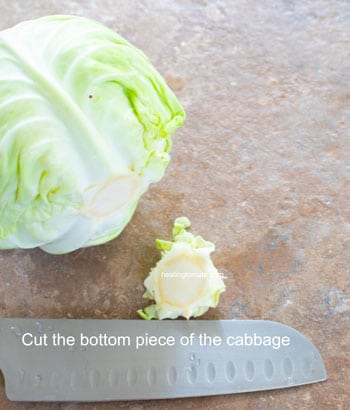
4) To make your life easier, wet the knife before cutting into it.
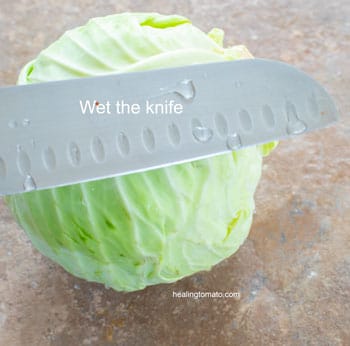
5) To cut the cabbage into half, look for the stem which divides the cabbage into half. Take your knife and start cutting from the top of the cabbage to the bottom. Use your palm to apply pressure on top of the edge of the knife. It will help make the cutting process easier
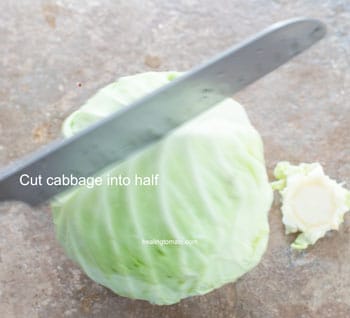
6) Once you have cut it in half, take a minute to admire the inside of the cabbage. Don’t you just love that maze look it has on the inside?
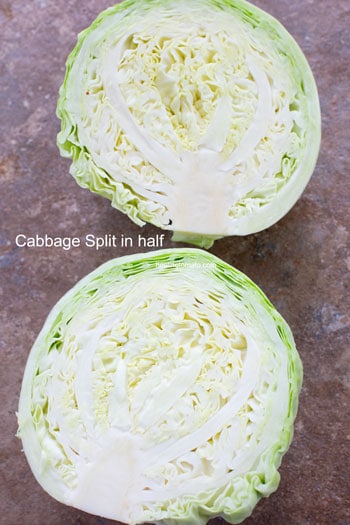
7) Take one of those pretty halves and turn it upside down. Find the middle of the cabbage and cut it into half
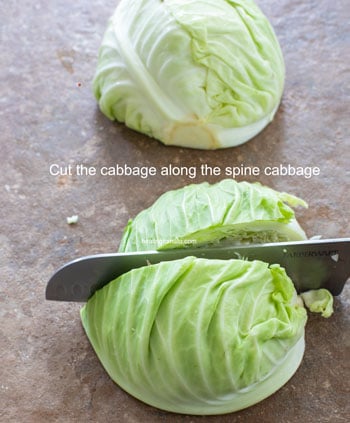
8) Take one of those halves and set it on its side. Start by cutting it into strips from the edge.
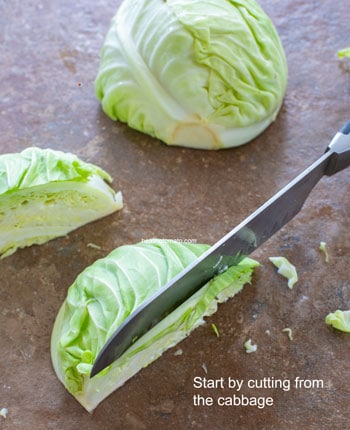
9) Keep your cabbage strips as thin as you can get them. The rule of cabbage cooking is that they cook faster when they are thinner or have a smaller surface area
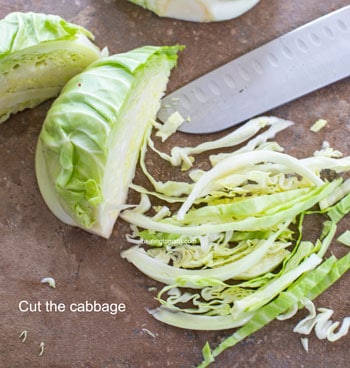
10) Repeat the steps for all cabbage “halves”. Once done, you can’t help but admire your wonderful handy work.

11) Place the cabbage in a sieve/colander and place it under running water to clean it. Wash it for about 30 seconds and set it aside to drain
12) Fill a big bowl halfway with room temperature water and add a 1/2 tsp of salt. Stir and then place the washed cabbage strips into the bowl and set aside for about 10 minutes. This will help soften them up and cook faster. Also, the cabbage practically melts in your mouth when you eat it.
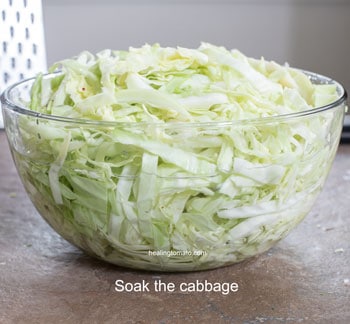
When you are ready to cook the cabbage, drain the water and paper towel dry it to soak up as much water as you can. Then add it to the pan for cooking.
That’s it! It’s really fun to cut cabbage, so, let me know how it worked for you.
Alternate method -> Shredding the cabbage
1) Follow the steps above until #7 where you cut the half cabbage into a quarter cabbage. Pull out your 4 sided shredded to help with this process
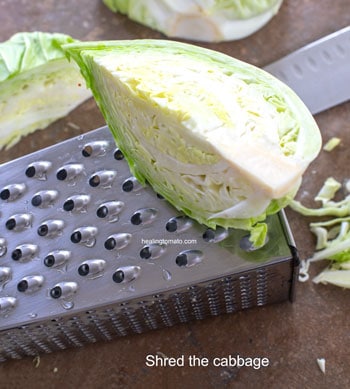
2) Take the long side of the cabbage and shred it. Please keep your fingers away from the shredder itself
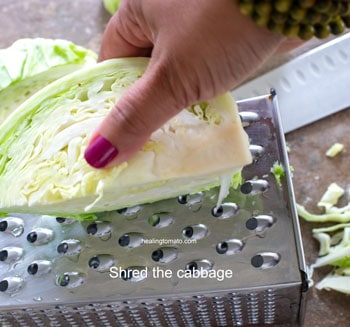
3) The end result is a really thinly shredded cabbage! It’s so perfect for cooking, isn’t it?
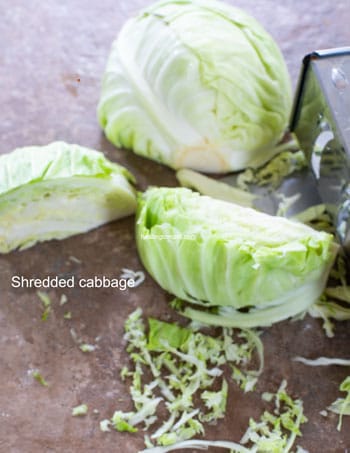
Personally, I think this method of shredding makes the cabbage too small. This cut is great for cabbage soups or stews. I have actually used this cabbage in a burger recipe before and it was the perfect cut for it.
So, which “how to cut cabbage” method is your favorite?
How to pick cabbage
Before I learned how to cut cabbage, I had to learn how to pick the perfect cabbage. Here are some of the things I look for when buying cabbage.
1) Pick the dark green outer leaves

A cabbage is perfectly ready when the outer leaves are dark green! The cabbage is at its peak when you see the green color on the cabbage. If you see too many “holes” on the outside of the cabbage, it’s probably not a good idea to cook it at this point. Maybe use it in a kimchi recipe or put it in a pickled veggies recipe.
The outside leaves should also have a smooth edge. It means that the cabbage is crispy and delicious
2) Pick the smaller cabbages
This really depends on your personal preference. I prefer a cabbage that has a little sweetness to it. The smaller ones tend to be sweeter and crispier.
I have found that the larger cabbages are slightly bitter and they don’t stay crispy when cooked
3) Pick from the bottom pile
This is a strange trick I have learned. I noticed that the grocery stores will put the older cabbage on top and the newer ones on the bottom. So, I always go digging a little to find the newer cabbage.
I don’t know if all the grocery stores do that, but, I have seen some of them do that. So, pick from the bottom of the pile, if possible
What to do with the outer leaves?
1) Compost them
I really hate wasting food, but, it’s inevitable. I do as much as I possibly can to save food in any way I can. So, I have found that the cabbage leaves are the perfect compost material.
Put it in your compost bin for about 1-2 weeks. It doesn’t take too long to compost a few leaves of cabbage, so, they should be ready after 2 weeks.
This (affiliate link) compost bin from Amazon is my favorite bin. Which one do you use?
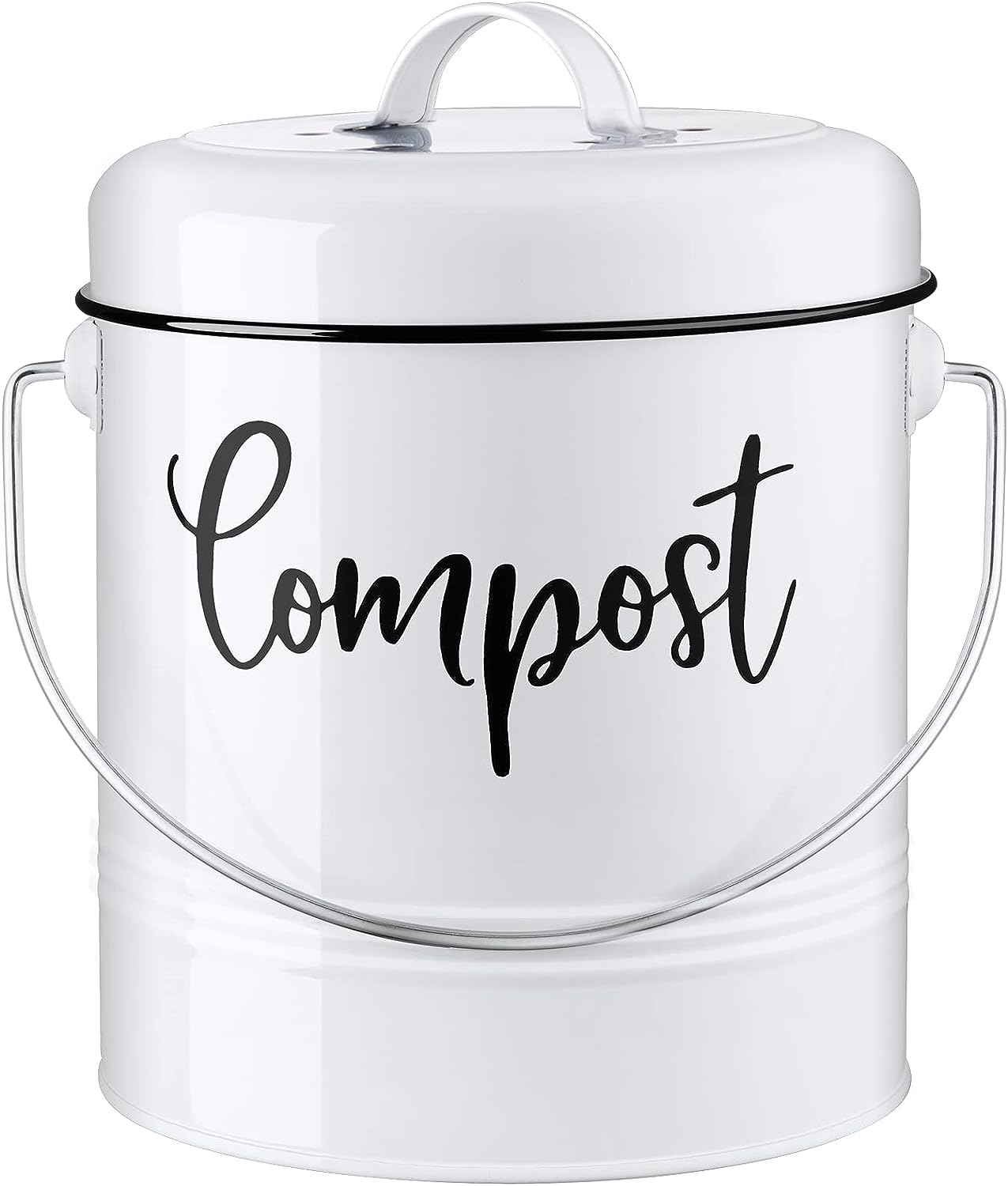
2) Place them in the soil of your home garden
Ok, so, you don’t have a compost bin! What do you do instead?
Well, before I had a compost bin, I would put the cabbage leaves out in the garden. I had friends who grew tomatoes or had fruit trees.
I put the leaves there and they would convert into soil food over time.
I have seen some women put it in the soil where they are growing roses. I can’t vouch for whether it helps the roses or not, but, it’s worth experimenting.
3) Find a rabbit
I have to admit I was struggling to find a third way to use cabbage leaves. When growing up, a family friend had a tortoise. We used to feed it cabbage leaves and they loved it.
Then, over Easter, a neighbor bought some black rabbits and I saw that she they were being fed carrots and cabbage. It took me back to the time we used to feed tortoises with cabbage leaves and I couldn’t help feeding these cute rabbits with cabbage leaves too.
So, if you have cabbage leaves and access to a rabbit or tortoise/turtle, feed them the green leaves. First, wash the leaves thoroughly before serving them to the animals. Also, cut them up into pieces and they will find it easier to eat them.
What to make with cabbage?
Ok, so now you are a pro at how to cut cabbage!
Yay!
What do you do with all the cabbage you cut? Well, make food out of it, right?
My all-time favorite cabbage recipe has to be Aloo kobi (Indian Style). Here is a photo I took of the recipe I made using the cabbage I used for the above pics. Sorry, no recipe at this time, but hopefully, this recipe will make it on the blog someday.
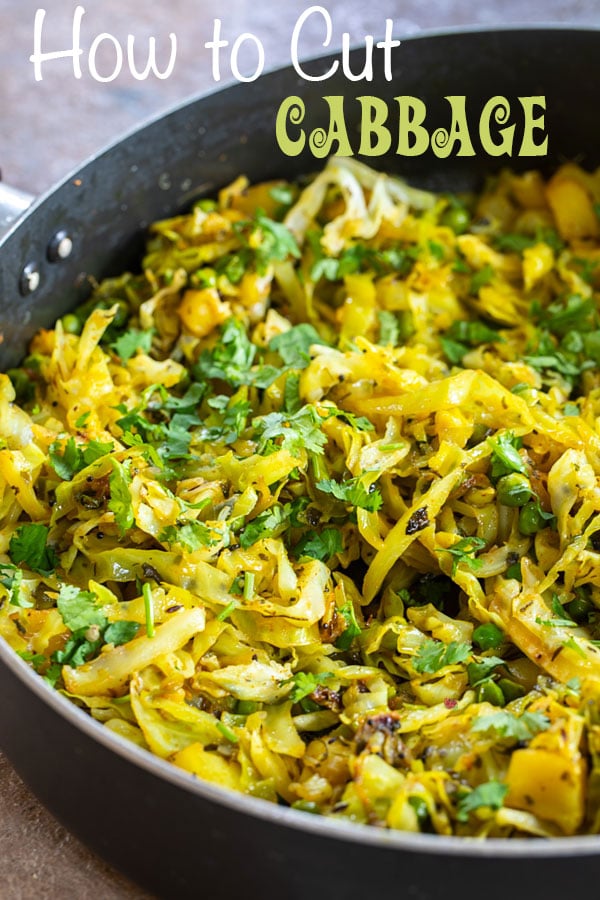
In the meantime, here are some fan-favorite cabbage recipes from my blog. Which one is your favorite?
3) Cabbage Pizza (I used red cabbage for this recipe, but, you cut it the same way as green cabbage)
4) Quinoa Wraps (I used red cabbage in this one too)
6) Kimchi Pizza – PIckle the cabbage and use it as a pizza topping
Give me some of your tips on how to cut cabbage and what to do with the outer leaves.
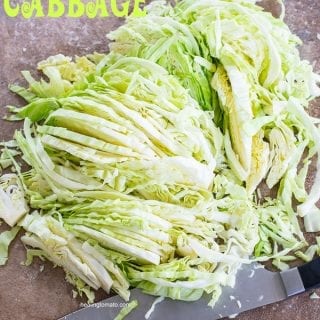
How to Cut Cabbage
Instructions
- Remove the outer leavers of the cabbage
- Cut of the bottom stem of the cabbage
- To make your life easier, wet the knife before cutting into it.
- Look for the stem which divides the cabbage into half and cut it along that stem
- Take one of those pretty halves and turn it upside down and cut it into half
- Take one of those half and set it on its side.
- Start by cutting it thin strips starting from the edge.
- Repeat the steps for all cabbage “halves”
- Place the cabbage in a sieve and place it under running water to clean it
- Set it aside to drain the water
- Take a big bowl and fill it halfway with room temperature water and 1/2 tsp salt
- Stir the water before placing the washed cabbage strips into the bowl. Set aside for about 10 minutes
- Drain the water and paper-towel dry it to soak up as much water
- Add it to the pan to cook or bowl for a coleslaw recipe

